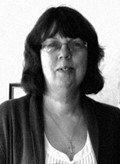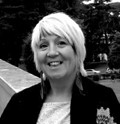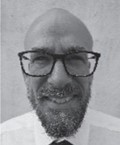
I have noticed an increase in the number of clients who have been given a psychiatric diagnosis. I am also struck by the rise in the number of clients who are keen to seek a diagnosis from a medical professional to describe or name their symptoms.
We can speculate about the reasons. But I wonder whether the medical model has come to dominate our approach to mental health. As a result, society is perhaps quicker to pathologise psychological distress. So, people seek help from their GP when they are experiencing mental health problems. A diagnosis is therefore more likely – and sometimes essential to access treatment.
In her article Dr Rachel Freeth, who is both a qualified psychiatrist and counsellor, asks us to consider our own views about psychiatric diagnoses, so that we can work more effectively with our clients who either have or want a medical diagnosis for their mental health difficulties.
If we can know and understand our own response, we can perhaps be more open to explore the many potential meanings of a diagnosis for our clients. We can then hopefully see our clients as individuals, rather than medical classifications.
People with money problems don’t always have mental health problems, but the two often co-exist. And it can be a toxic combination. High levels of debt, for example, can lead to high levels of stress and anxiety. There is also evidence to suggest a connection between problem debt and suicide. Brian Semple argues that we could help our clients by acknowledging the link between money and mental health – and by signposting them to sources of support to manage their finances.
We are introduced to Tom, a 95-year-old man who is struggling to come to terms with the death of his wife, and his subsequent move to a care home. He was the first ever client of Helen Kewell, who writes about their encounters in this extract from her recent book about counselling the elderly. It is both sad and uplifting, as well as generous and open in its exploration of the therapeutic process.
Some of you might be familiar with the clinical vocabulary SNOMED CT, which is being rolled out across NHS health services in England. Dr Barry Orr tells us all about it. He also explains his misgivings about the system.
You might be struggling to find a meaning in the pandemic. It might also have crushed, or at least challenged, your sense of purpose. Noel McDermott reflects on the events of the past year and offers his own perspective on the impact of coronavirus on our professional and personal lives.
Dawn Estefan is on the couch. Dawn works for the NHS, as well as in private practice. She is particularly interested in the impact of race, tradition and religion on mental health, especially women’s mental health. It will give you some idea of Dawn’s passion, energy and commitment if I tell you that she set up one of the first FGM psychotherapy groups in London. So, I am delighted that she has agreed to write a regular column for HEALTHCARE Counselling and Psychotherapy Journal, starting in the October issue. Dawn wants to give women a voice – and hers, too, is a voice that should be heard.
Naomi Caine
hcpj.editorial@bacp.co.uk





